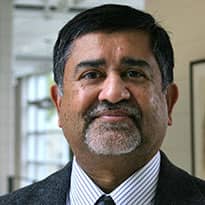It is therefore important to gather as much careful evidence for reincarnation as possible. For over three decades, Professor Ian Stevenson of the University of Virginia worked on collecting case studies of children who claimed to have lived previous lives, and had details to corroborate their claims. Stevenson collected these case studies from many countries, but found the most abundant in India. "I don't have a good explanation [for that] . . . I worry about it. The obvious explanation is that children aren't encouraged to speak [about their experiences] where it's suppressed in the West," Stevenson said.
It could also be surmised, correctly, that such speculations are circular in nature. It could just be that there are more cases in India because India is Hindu majority, and Hindus believe in reincarnation. However, Stevenson also believed that children in Asia were also discouraged from speaking about their past lives because parents or people around them did not like what the child said or had to say, especially if what they had to say included sordid details about events in their past lives.
Too many social scientists end up doing "safe" work. Given the pressures in academic circles to do research on what are considered acceptable topics using specific methodologies, it is indeed commendable that scholars at the University of Virginia are willing to withstand the scornful gaze of their fellow academics and go looking for evidence that can better explain why we are born with certain traits, and why we exhibit behaviors and personalities that cannot be explained by genetics, psychoanalysis, or behaviorism. The Division of Perceptual Studies at the University of Virginia studies a variety of paranormal behavior—from children who claim to remember past lives to near death experiences, and out-of-body experiences to near-death experiences. May be we can soon find creative ways to study these behaviors using the combined knowledge and skills of psychologists, psychiatrists, astrologers, palm readers, shamans, and priests and discover the many ways in which our lives interact with others and why we do what we do the way we do.




